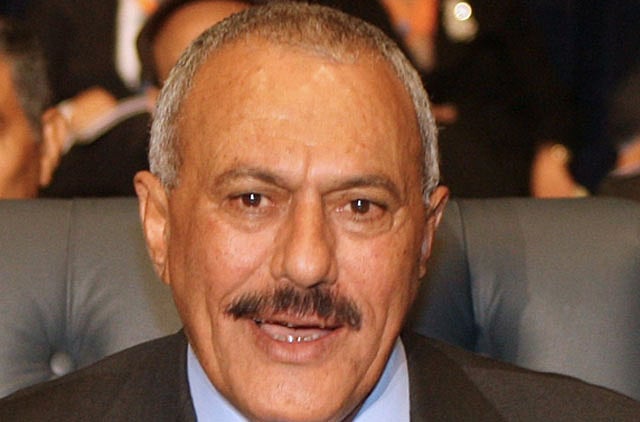On the sidelines of Change Square, in central Sana’a, which has become the epicentre of the Yemeni attempt to build a civil society, President Ali Abdullah Saleh is growing increasingly desperate, holding on to his old tactics. This is only making his time in power shorter. He has lost all legitimacy, having used extreme violence against peaceful protesters.
The youth in the square are not affiliated to any organisation or opposition party. They have one goal; to eliminate corruption, which has affected social and economic life.
The youth came out to fight for legitimate demands and camped in the square well before opposition parties joined in support, calling for reforms. The opposition parties, having lost all hope of achieving reforms through dialogue with the government that went on for decades, suddenly saw a new dawn descending on Yemen as young people revolted against a corrupt government. That helped opposition parties raise the stakes — and call for the toppling of the government.
The government’s reaction was really strange. President Ali Abdullah Saleh acted as if this crisis was just like any other, Yemen had gone through before. He chose to resort to violence, as he had done previously, to disperse the protesters. This time he went too far, provoking many army commanders to join the youth movement in order to protect it from the onslaught of the infamous security forces, which report directly to Saleh or members of his immediate family.
The president also chose to repeat another old scenario for which he has become famous. In 2006, he announced that he would not run in the presidential election. But he then gathered thousands of his supporters to ‘demand’ that he run for office again.
Today we are seeing the same ploy, wherein he announced that he would step down, but at the same time gathered his supporters every Friday to ‘prove that the Yemeni street’ still supports him, personally, and his government. He should have realised the ploy would not work this time. The youth and opposition parties have protested in their tens of thousands, patiently and peacefully, for almost three months to demand his departure despite the vicious campaign by the notorious security forces.
In another indication of his desperate attempts to stay in power Saleh, during his recent speeches, preferred to ignore the importance of the youth in the process of change. He was in denial about their huge numbers and dismissed their right to call for change. He irked young demonstrators when he asked women protesters to ‘fear God’ and refrain from joining men in the Change Square and other sites of protests across the country — an obvious attempt to manipulate the conservative mores of Yemeni society.
But that is very hypocritical of the president — he must fear God himself. Why didn’t he ask women who marched in his support not to mingle with men?
His call against mingling of the sexes in the protest movement is just a regressive attitude against women’s rights, and is intended to downplay the leading role played by women in Yemen in the current uprising.
This has led to women protesters complaining to the Attorney General against the president for ‘insulting their honour’. Yemeni women proved to the whole world that they were equal partners with men in this revolution, even though the government is to trying to suppress it not only with violence but also by assaulting these free women who are also adamant to sacrifice themselves, their sons and husbands for a free Yemen.
One wonders where Saleh’s claim of supporting the participation of women in all fields has gone. And what did he actually do to advance the cause of Yemeni women?
The insult he hurled reflected his government’s policy. In his rule, women cannot even go to the markets alone because of fear of harassment. Women in fact came out to protest against his corrupt regime in order to protect their dignity and honour, hoping to create a free society instead of the current system where they find it difficult to even get a job.
An unacceptable incident took place during recent clashes between the government and the protesters, when security forces kidnapped four female doctors, only to free them later when protesters threatened to march on the presidential palace. These fast-paced developments prompted the GCC, with support from the European Union and the US, to begin mediation between the government and the opposition parties. But the president still thinks he is dancing on the heads of the snakes as he said in one of his interviews; perhaps this time he will prove that he is a bad dancer. But will he do the right thing and accept the Gulf initiative as it seems to be his last chance of a safe exit and the security of his country?
Does he think that international community will accept Yemen becoming another Somalia? Doesn’t he know that there will certainly be more pressure from European countries?
Sign up for the Daily Briefing
Get the latest news and updates straight to your inbox
Network Links
GN StoreDownload our app
© Al Nisr Publishing LLC 2026. All rights reserved.
